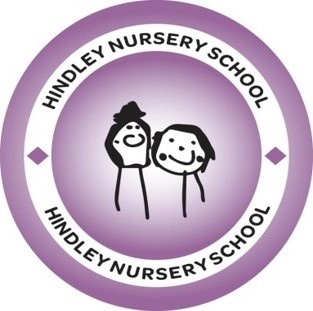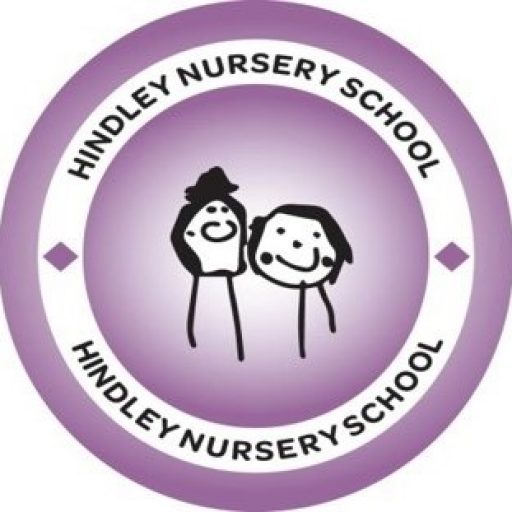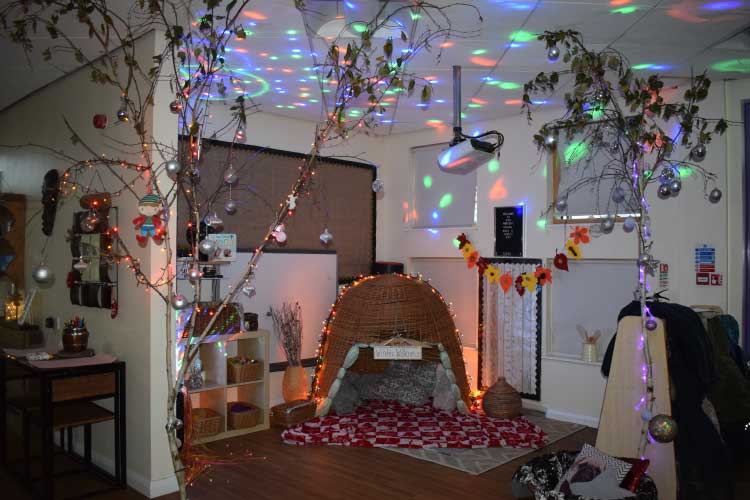
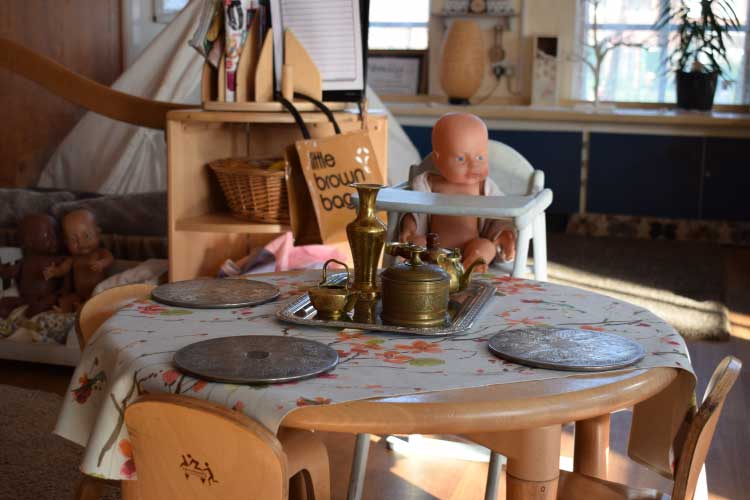
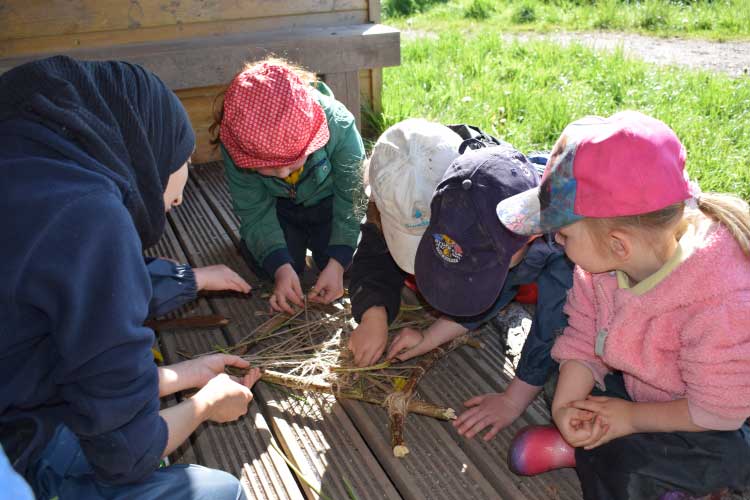
Statutory Framework for the Early Years Foundation Stage – definition:
The development of children’s spoken language underpins all seven areas of learning and development. Children’s back-and-forth interactions from an early age form the foundations for language and cognitive development. The number and quality of the conversations they have with adults and peers throughout the day in a language-rich environment is crucial. By commenting on what children are interested in or doing and echoing back what they say with new vocabulary added, practitioners will build children’s language effectively. Reading frequently to children, and engaging them actively in stories, non-fiction, rhymes and poems, and then providing them with extensive opportunities to use and embed new words in a range of contexts, will give children the opportunity to thrive. Through conversation, storytelling and role play, where children share their ideas with support and modelling from their teacher, and sensitive questioning that invites them to elaborate, children become comfortable using a rich range of vocabulary and language structures.
The Benefits of Nursery Rhymes on Preschool Development
Cognitive development
Repetition of rhymes and stories is good for the brain, teaching how language works and building memory capabilities.
Nursery rhymes help develop inferencing skills, both with encountering new words and in reading comprehension.
Because these verses are made up of patterns, they are easy first memorization pieces.
Speech
Nursery rhymes are important for language acquisition and help with speech development.
They help children develop auditory skills such as discriminating between sounds and developing the ear for the music of words.
Rhymes like these help kids articulate words, modulate voices (practicing pitch, volume, and inflection) and enunciate clearly by saying them over and over without fear of criticism.
Nursery rhymes are excellent, the natural choice for a first recitation selection.
The mouth and tongue muscles are developed as children say these rhymes.
Listening comprehension is a foundational skill that is often skipped, but nursery rhymes can help ensure this crucial ability (that precedes reading comprehension) is covered.
Reading
Nursery rhyme knowledge provides an excellent foundation for later literary works.
They are a great introduction to stories since many contain a beginning, middle, and end (sequencing).
Familiarity with nursery rhymes makes good readers, even despite differences in social background (Bryant, Bradley, Maclean & Crossland, 1989).
Work with these verses helps children detect the phonetic segments of words.
Language
Nursery rhymes increase vocabulary.
They help children assimilate language.
They are a great, wonderful introduction to poetry.
They promote spelling skills.
Verses like these introduce literary devices like alliteration, onomatopoeia, and imagery.
At Hindley Nursery School we have ‘Core Rhymes’ which we use to support language development, some of our core rhymes are below. Click on the links and sing them together! ![]()
![]()
Twinkle Twinkle Little Star Lyrics | Nursery Rhymes | Children Love to Sing – YouTube
Hickory Dickory Dock • Nursery Rhymes Song with Lyrics • Animated Cartoon for Kids – YouTube
Baa Baa Black Sheep – Nursery Rhymes and Kids Songs – YouTube
Old MacDonald Had A Farm | Nursery Rhymes | Super Simple Songs – YouTube
Incy wincy spider | Early Years – Nursery Rhymes – YouTube
Two Little Dicky Birds – Nursery Rhyme with Karaoke – YouTube
Nursery Rhyme – 1,2,3,4,5 Once I caught a fish alive – YouTube
Five little ducks went swimming | Early Years – Nursery Rhymes – YouTube
Humpty Dumpty | Kids Songs | Super Simple Songs – YouTube
Five Little Speckled Frogs | Kids Songs | Super Simple Songs – YouTube
